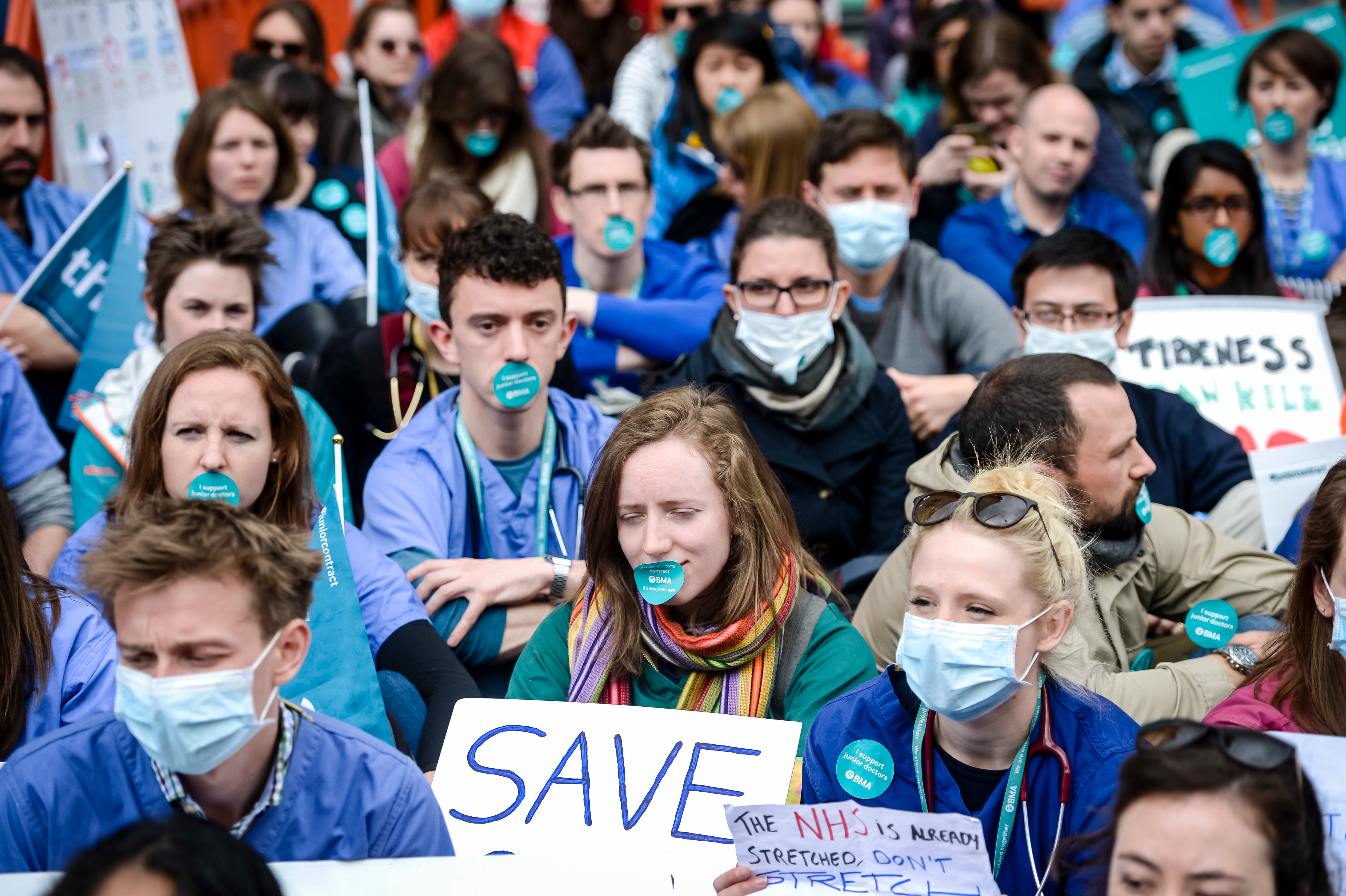Junior doctors to vote on plans to hold three-day strike in row over pay
Threat of three further days of NHS disruption comes ahead of 9 January ballot

Your support helps us to tell the story
From reproductive rights to climate change to Big Tech, The Independent is on the ground when the story is developing. Whether it's investigating the financials of Elon Musk's pro-Trump PAC or producing our latest documentary, 'The A Word', which shines a light on the American women fighting for reproductive rights, we know how important it is to parse out the facts from the messaging.
At such a critical moment in US history, we need reporters on the ground. Your donation allows us to keep sending journalists to speak to both sides of the story.
The Independent is trusted by Americans across the entire political spectrum. And unlike many other quality news outlets, we choose not to lock Americans out of our reporting and analysis with paywalls. We believe quality journalism should be available to everyone, paid for by those who can afford it.
Your support makes all the difference.Tens of thousands of junior doctors across England are set to strike for 72 hours in March if a looming ballot on industrial action is successful, their trade union has announced.
The British Medical Association (BMA) warned of three days of further disruption for the NHS if health secretary Steve Barclay continues to refuse to negotiate over pay demands.
It comes ahead of a ballot opening on 9 January, when 45,000 junior doctors in England will be asked whether they want to strike in the row over pay.
The BMA claimed that Mr Barclay was making attempts to find a negotiated settlement impossible by ignoring “all calls and letters” despite the prospect of strike action.
“Pay erosion, exhaustion and despair are forcing junior doctors out of the NHS, pushing waiting lists even higher as patients suffer needlessly,” said Dr Vivek Trivedi and Dr Robert Laurenson, co-chairs of the BMA junior doctors committee.
They added: “The government’s refusal to address fifteen years of pay erosion has given junior doctors no choice but to ballot for industrial action. If the government won’t fight for our health service, then we will.”
The union said successive governments have overseen 15 years of real-term pay cuts for junior doctors, saying it amounted to a “staggering and unjustifiable” 26.1 per cent decline in pay since 2008-09.
But the government has awarded only a 2 per cent pay rise for junior doctors, and Mr Barclay has continued to point to the recommendation of the independent pay review body as a reason to avoid negotiations.
The BMA said it was “particularly galling” to see Rishi Sunak and his ministers refer to the pay review body. “The reality is that the doctors’ pay review body has been constrained by political interference for more than a decade,” said the union’s co-chairs.
The prospect of fresh NHS disruption comes as ambulance staff prepare to walk out on 11 and 23 January, while nurses will strike again for two consecutive days on 18 and 19 January.
The government has vowed to press ahead with plans to introduce new legislation to enforce “minimum safety levels” in the NHS and five other key sectors during industrial action. Health unions reacted with fury to the move, saying it would do nothing to resolve the disputes breaking out across the country.
The Royal College of Nursing, GMB and Unison – leading the walks-outs planned for nurses and ambulance staff later in January – also vowed to opposed “desperate” anti-strike legislation.
The government also urged union leaders to meet for “honest, constructive conversations” about public sector pay settlements for 2023-24, as part of a “reasonable approach” to avoiding prolonged strikes.
But unions bosses said ministers must engage on pay demands for the current year, with the GMB health union accusing the government of trying to “kick the can down the road”.
The BMA and other health bodies have warned of an “exodus” of NHS staff as industrial dispute rumbles on. Four in ten (40 per cent) of junior doctors plan to leave the health service as soon as they can find another role, a survey carried out by the BMA last month found.
Low pay and poor working conditions were the main reasons cited for wanting to leave, with the union warning that the NHS “would not be able to cope” without two-fifths of its junior doctor workforce.
It comes after Mr Barclay appeared to blame high numbers of flu, Covid and Strep A cases for the particular pressures the NHS faced over Christmas – a claim refuted by health leaders who pointed to long-term struggles.
Dr Vishal Sharma, chair of the BMA’s consultants committee, said the government’s refusal to admit that the NHS is in a state crisis was “simply delusional”.





Join our commenting forum
Join thought-provoking conversations, follow other Independent readers and see their replies
Comments